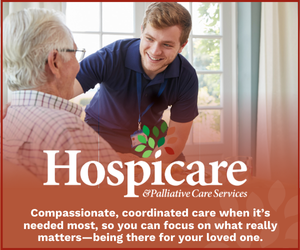(607NewsNow) — When facing a serious illness, either personally or within your family, you may hear terms like hospice care and palliative care used often. While these services share similar goals of comfort and support, they are not the same. Understanding the difference can help individuals and families make informed decisions during what is often a difficult time.
What Is Palliative Care?
Palliative care is a specialized form of medical care focused on providing relief from the symptoms, pain, and stress of a serious illness, regardless of the diagnosis or stage of the illness. The goal is to improve the quality of life for both the patient and their loved ones.
Palliative care can be provided alongside curative or life-prolonging treatments. For example, someone receiving chemotherapy for cancer, or treatment for advanced heart disease, may also receive palliative care to manage nausea, fatigue, or emotional distress. It is typically offered in hospitals, outpatient clinics, nursing homes, or even in a patient’s home.
What Is Hospice Care (Hospicare)?
Hospice care, sometimes referred to as Hospicare, depending on the provider, is a specific type of palliative care for people who are nearing the end of life. Hospice is typically appropriate when a patient is no longer receiving curative treatment and has a prognosis of six months or less, if the illness follows its expected course.
Hospice focuses entirely on comfort, dignity, and quality of life. Care is often provided in the patient’s home, in hospice residences, or in nursing homes. The hospice team, made up of doctors, nurses, social workers, chaplains, and volunteers, works closely with patients and families to manage symptoms and offer emotional, spiritual, and practical support.
Have more questions? Visit the Hospicare and Palliative Care Services of Ithaca website here for more clarity.




